UK honours WWII veteran from Chakwal
Hayat, now 99, admired for his services and sacrifices during WWII
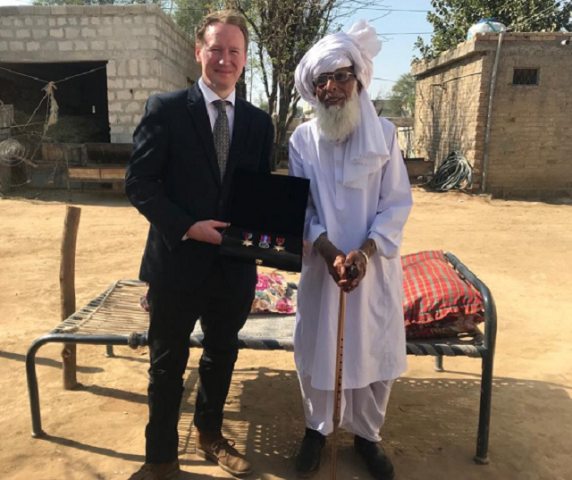
The British High Commission on Thursday handed over the United Kingdom’s three replacement medals to a Chakwal veteran for his services and sacrifices he made while working as a driver in the British Indian Army during World War II (WWII).
Lance Naik Umar Hayat, now 99 years old, gathered with his family and neighbours at a ceremony where the Commission’s Deputy Head of Communication, Tom Hyde, honoured him with three medals – The Burma Star, The War Medal and The 1939-1945 Star – that he had lost in 1975 when his house collapsed due to torrential rains causing flooding.
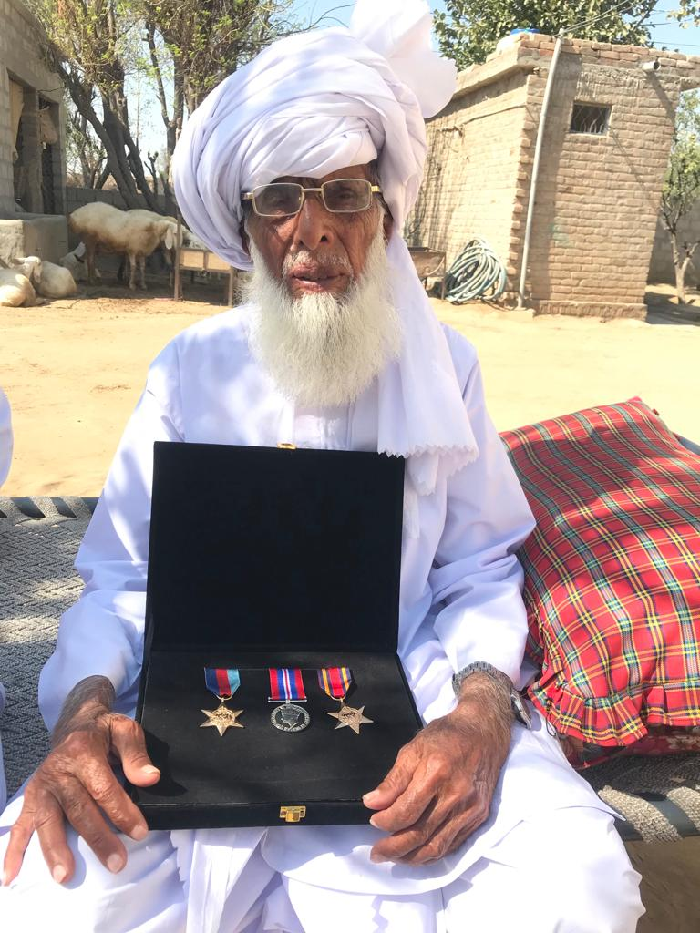
“Medals reflect the official thanks of a government to those who have served it honourably, often with gallantry or distinction,” Hyde maintained, noting how important this year is for the Commonwealth ties and given King Charles II interest, the UK decided to replace the medals the veteran had lost.
Under blue skies in a warm winter day, Hayat along with his sons and some of the total 95 members of the family attended the ceremony organised at his village Dhermond in the Talagang Tehsil, Chakwal District, Punjab, in line with the Remembrance Day – the day to honour and commemorate the British service members who had taken part in the wars.
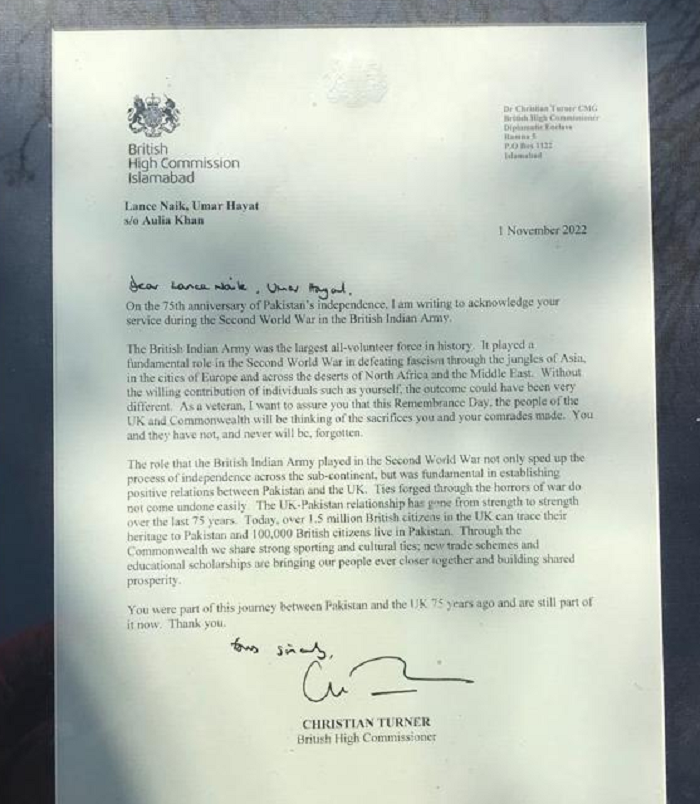
Hayat served the army from 1941 to 1948 and fought at Burma now Myanmar.
The Chakwal veteran, who wore white Shalwar Qameez matching with his turban and beard, shiny black shoes and sat with straight back on a charpoy at his home, held the mementoes with pride, saying “these medals have brought back all the memories of the war (WWII). I can see my unit, my friends, my officers and all the sacrifices that we gave while fighting”.
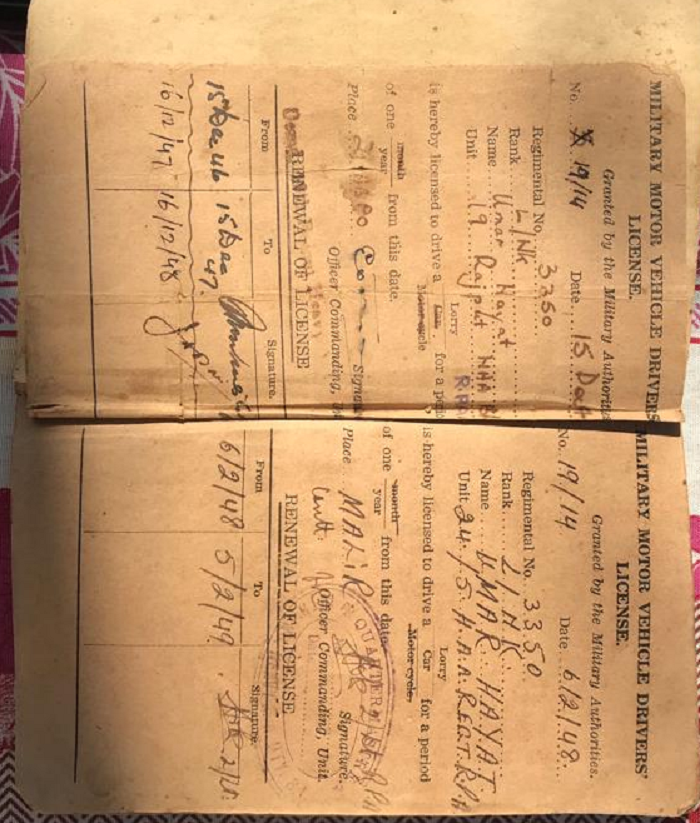
“Really it is an honour for me,” said Hayat when given his replacement medals. The veteran revealed that his father, Aulia Khan Major, had fought in the First World War.
When the second one started, he recalled, his father told him to join the army and embrace martyrdom but not take a step back.
For Hayat, war is a good thing as it gives one a chance to show bravery against his enemies.
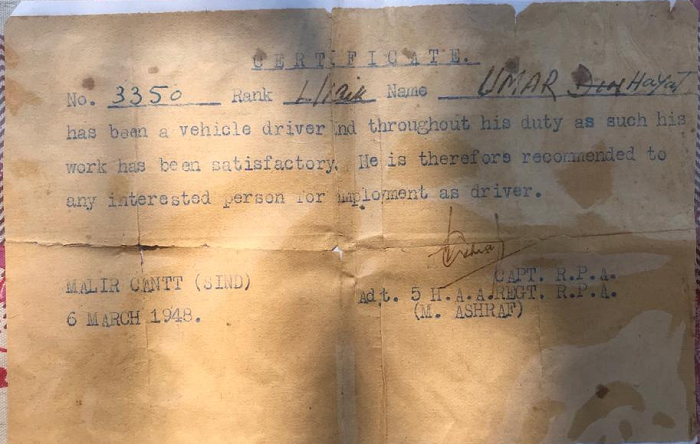
Agreeing that people die in wars, he argued, winning and losing is also a part of it, saying that in earlier times “kings were fond of expanding their empire”.
In the next breath, Hayat, showing high spirits, said that he was still ready to fight a war, observing that he could use his gun but not a rifle or heavy artillery that he used during the war days.
“My officer used to call me an all-rounder as I didn’t limit my work to driving only,” he said while crediting his good health to desi ghee and pure milk.
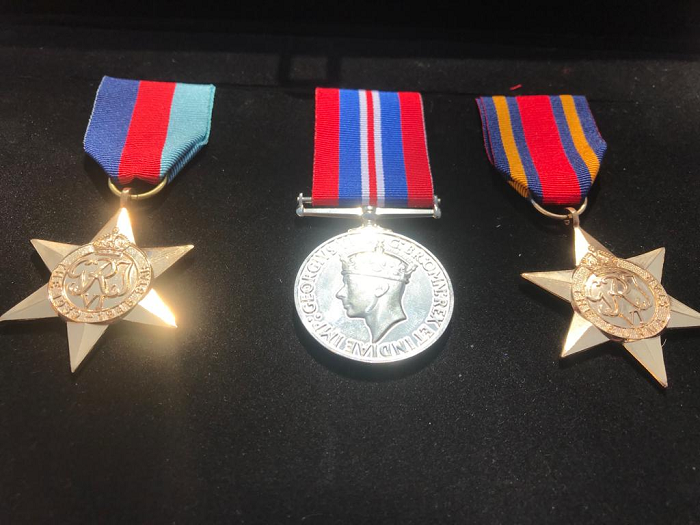
Going down memory lane, Hayat while reading his name and service number written on the medal box recalled that his father had taken him out of school when a teacher beat him up, adding, he later on learned reading and writing after joining the army.
To mark Remembrance Day last year, the Commission paid special visits to some of the last remaining veterans of the Second World War in Pakistan, hailing their courage and sacrifice, and reinforcing the point that the UK is here today because of them.
Last November, the former British High Commissioner Christian Turner had acknowledged Hayat’s services and sent him a framed letter, which he fondly hangs on a wall.
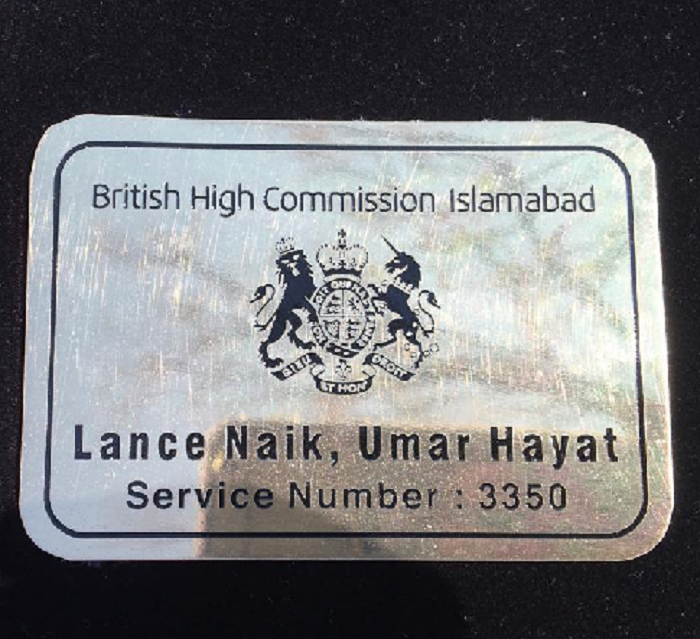
He still has his Military Motor Vehicle Drivers’ Licence, a character certificate dated March 6, 1948, a service certificate and two plates in which they were served meals during wartime.
World War II was the biggest and deadliest war in history, involving more than 30 countries. Sparked by the 1939 Nazi invasion of Poland, the war dragged on for six bloody years until the allies – the UK, Soviet Union, United States, and China – defeated Nazi Germany and Japan in 1945.
Hyde said that a 2.5 million British Indian Army in WWII was the largest volunteer army ever mobilised.
On 75 years of Pak-UK Dosti, Hyde said, the veterans that we have been visiting were there at the start of the relationship 75 years ago and it’s “only right that 75 years later we mark their achievements again as we celebrate our shared values through the Commonwealth.”
Remembering the day when the war was over, Hayat recalled that the troops celebrated the victory and his unit was happier as it did not suffer huge losses in terms of fellow troopers, including Hindus and others that many other units had.
War veterans receive a small allowance from the Commonwealth Ex-Services League.
Hayat, who appeared content with getting his medals back, had only one wish from local authorities: “give a job to my two grandchildren in the army”.
UK honours WWII veteran from Chakwal
— The Express Tribune (@etribune) February 24, 2023
For more, visit: https://t.co/wZeT8Q6sJX#Etribune pic.twitter.com/x0WBo6QvF1


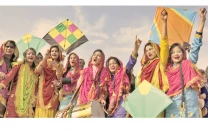
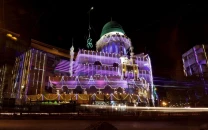

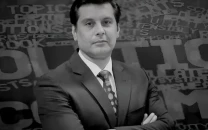
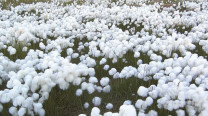












COMMENTS
Comments are moderated and generally will be posted if they are on-topic and not abusive.
For more information, please see our Comments FAQ